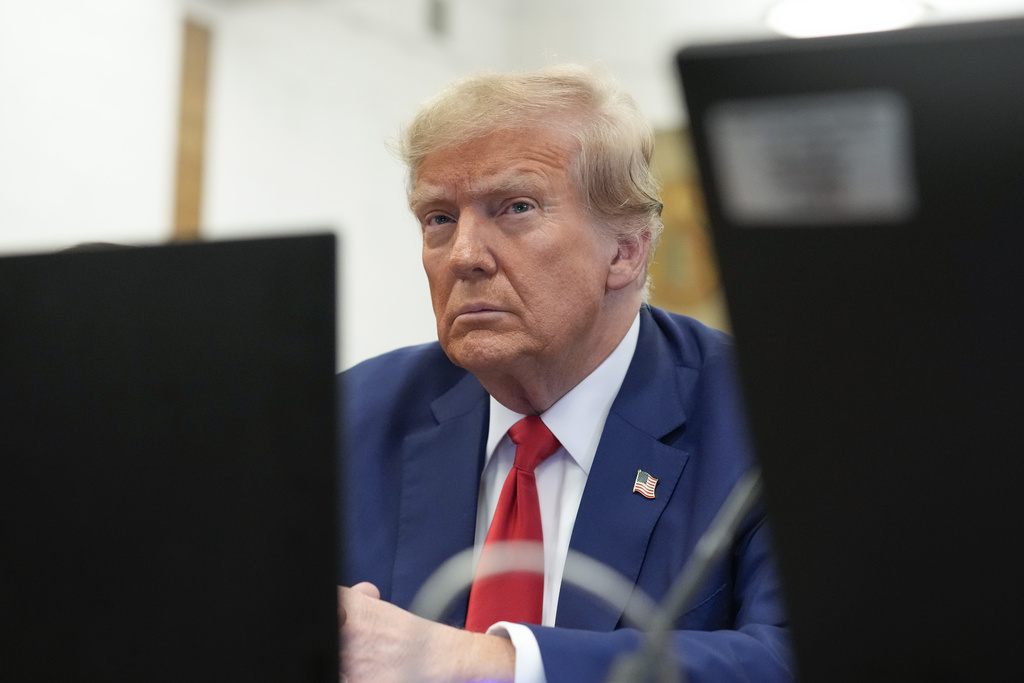

Many of us appalled by former President Donald Trump’s lifetime of dishonesty may take schadenfreude in the massive financial judgments now threatening his business empire — but the sizes of those judgments, and the bonds pertaining to them, are utterly unwarranted.
Appeals courts should grant temporary injunctions to halt the bond collections and delay enforcement of the underlying penalties.
Two judgments are at issue, but one is particularly pressing. The first judgment, that Trump defamed E. Jean Carroll, who courts found had credibly accused him of sexual assault, came with an $83 million assessment against Trump. The second judgment assessed $355 million in penalties against Trump and his associates for fraudulently claiming tax and insurance benefits. This amount, plus interest, led to a demand that Trump post bond for $464 million by Monday. The assessment is so large as to represent an existential threat to Trump’s business empire. Trump’s lawyers say his assets are not liquid enough to post so high a bond. If he fails to post it, New York Attorney General Letitia James threatens to seize Trump’s properties and sell them to secure the cash.
Here’s Trump’s catch-22: Trump can appeal the underlying assessment, but the bond payment is due in advance of the appeal as security in case a final ruling goes against him. Yet if he can’t afford to post bond, he begins losing his assets before his main appeal can be heard. Trump may as well be facing the Queen in Alice’s Wonderland who insisted on applying the “sentence first — [appeals] verdict afterwards.”
Logically, this is insanity. Combined with the exorbitant sizes of the two judgments, the treatment of Trump is an obscenity.
Consider the $83 million penalty in the Carroll case. The first $18 million supposedly represents how much Carroll is due in direct “compensatory” damages for the reputational harm she suffered from Trump’s defamation. That alone is wildly extravagant, more than three times what actor Johnny Depp, who obviously had a much more financially significant reputation to protect in the first place, was awarded when former wife Amber Heard defamed him. The jury awarded Carroll another $65 million in “punitive” damages, meant not as compensation for her actual suffering but just to further punish Trump.
All this was for Trump using typically Trumpian language, calling Carroll a “whack job” who was not his “type” while denying her allegations of sexual abuse. Even if defamatory, those are hardly comments worthy of $83 million in penalties.
Then there’s the financial fraud case. Trump acted dishonestly in multiple ways while securing business loans. Yet as noted by almost every salient observer, not even the banks suffered any losses from Trump’s conduct, so the real “victims” were the overall banking and financial markets. Under a semi-reasonable theory, the markets suffered losses at the margins, diffused through the whole economy, because Trump’s gaming of the system arguably nabbed resources that others might have enjoyed. To penalize Trump by $355 million (plus interest) for this offense is akin to assessing a $50,000 fine on a non-injury-causing jaywalker.
CLICK HERE TO READ MORE FROM THE WASHINGTON EXAMINER
Trump’s attorneys have a somewhat plausible case that the penalty is “unconstitutionally excessive” and that forwarding so much bond money as security now “would inevitably result in massive, irrecoverable losses — textbook irreparable injury.”
The first important legal justification for a temporary injunction is if one side would suffer irreparable harm in the interim before courts can consider a case’s full merits. Appellate rules, state laws on bonds, and the applicability of legal “equity” can be complicated. Yet the cause of basic “equity,” in the (original, non-woke) vernacular meaning of that term, demands that Trump be granted at least provisional relief. When the bond itself becomes the irrevocable punishment, regardless of how courts finally decide the validity of the underlying case, no defendant, not even a loutish grifter, should suffer a bond so severe.




